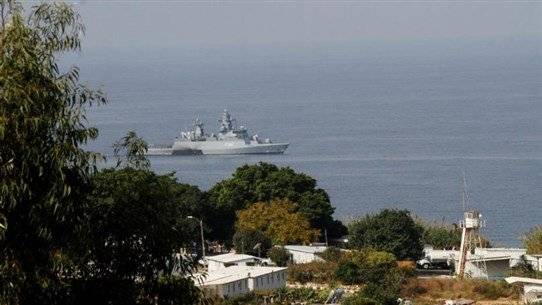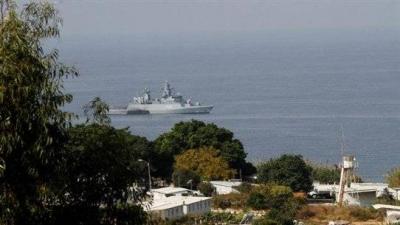The Secretary-General of Hezbollah, Hassan Nasrallah, reaffirmed his position regarding the border demarcation. He confirmed his commitment to the deadline he set for reaching an agreement. He emphasized the separation between the nuclear deal negotiations between Iran and the West and the demarcation file. This stance has been communicated by Hezbollah to all officials, based on the premise that if the Israelis and Americans agree to Lebanese demands, the agreement can be signed without reaching a nuclear deal.
Israeli Confusion and embarrassment is on the rise. Nasrallah is raising the stakes to the highest levels and is expected to continue his threats next Monday. He certainly possesses information regarding the Israelis' willingness to accept Lebanese conditions, as they have no interest in escalation. Hezbollah is benefiting from regional and international circumstances to intensify its position. There are Lebanese estimates confirming that an agreement will materialize. President Michel Aoun seems confident that the demarcation agreement will be signed before the end of his term.
Ongoing Israeli debate surrounds the possibility of delaying gas extraction from Karish until after the Israeli elections, to avoid Hezbollah's threats. After the elections, it may be possible to conclude an agreement with Lebanon. Conversely, some Israeli positions reject postponement, insisting on extraction at the scheduled time in mid-September. Supporters of this option argue that any delay would mean yielding to Hezbollah, negatively affecting the electoral battleground.
In Israel, there is also confusion regarding how to deal with this agreement. There is an idea of referring the file to a popular referendum, as it involves conceding a maritime area considered by Israelis as part of their own. This means conceding a sovereign file. Another idea revolves around not conceding the space of the Qana field, in exchange for an American commitment that investment in energy in this field belongs to Lebanon. Another point that is subject to contention and confusion is the area claimed by the Israeli side from Block 8, aimed at routing the gas pipeline to Cyprus and then to Europe, which Lebanon wholly rejects.
In terms of positions and realities, Israel appears to be in an embarrassing position regarding two key files: border demarcation with Lebanon and the nuclear agreement. Iran and Hezbollah emerge as beneficiaries and advanced in both matters. This is reflected in Hezbollah's claim of credit for achieving what Lebanon has succeeded in, while still asserting its support for the Lebanese state. Yet, it believes that its stance and threats enabled Lebanon to secure its rights, bring negotiations back onto a serious track, and extract concessions from the United States and Israel.
In this equation, the previous Lebanese concession regarding Line 29 falls away. Lebanon had made a prior concession by not signing the amendment to Decree 6433. This must be covered through this escalation to demand the entirety of Line 23, in addition to the Karish field.
Waiting for Hochstein
September is thus expected to be full of developments, as the Lebanese anticipate the return of Amos Hochstein. Estimates indicate his visit will take place in the last days of August. Hochstein is expected to return with a written proposal to present to the Lebanese and Israelis. If accepted or if minor adjustments are requested, they will be made, and dates for indirect negotiation sessions in Naqoura will be set. The negotiations will require one or more sessions, to finalize the necessary protocol, wherein the Lebanese side will sign a protocol separate from the one signed by the Israelis, as there are no agreements between Lebanon and Israel. The protocol will then be submitted to the United Nations, and the Lebanese government will prepare a decree to modify the border area according to what has been agreed upon.




